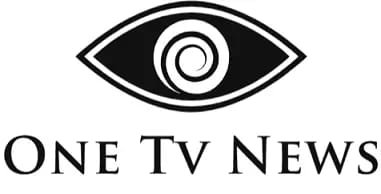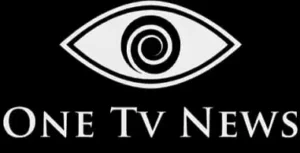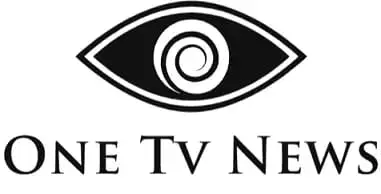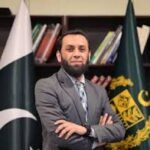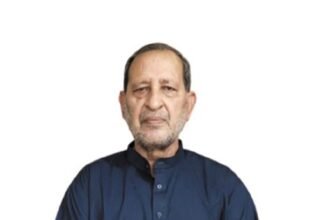PTI’s Protest Politics
The SCO Summit, PTI’s D-Chowk Protest, and the Perils of Political Instability in Pakistan
The Shanghai Cooperation Organization (SCO) summit is set to take place on October 15-16 in Islamabad. This summit presents a significant opportunity for Pakistan to improve its image on the global stage. However, surprisingly, PTI has intentionally announced a protest at D-Chowk in Islamabad on October 15, a move that leaves no doubt about the party’s disruptive and subversive nature. At the very least, PTI should have refrained from protesting during the SCO summit. Even animals like cats and dogs would hesitate to disturb an uncovered dish; similarly, some decorum should be shown in such circumstances.
It seems that PTI fails to understand that international summits and conferences offer foreign countries a glimpse into a nation’s conditions, law and order, beauty, culture, and overall atmosphere. These impressions often shape decisions related to investment and the promotion of sports. If PTI does understand this yet still chooses to protest, then such an act can only be regarded as bordering on treason. What does PTI’s invitation to Indian Foreign Minister Jaishankar to join their protest signify? It seems the party, disheartened by the loss of power, is treading the same path as the MQM under Altaf Hussain, appealing for support from India. PTI’s official handles have even shared videos of Sheikh Mujibur Rahman recently, suggesting that the situation has spiraled out of control and now requires a firm response.
PTI’s obstinacy knows no bounds. For the past two and a half years, the party has not rested for a single moment. Unseasonal, meaningless, and pointless rallies, sit-ins, and protests on streets and intersections have become a daily routine. There are other ways to express joy and celebration; it is not necessary to disrupt the public’s life and damage public property to do so. Among the various protests, Jamaat-e-Islami’s demonstrations stand out as more legitimate, focusing on public issues and the reduction of electricity prices.
The non-stop protests by PTI have no connection to public welfare or the law. These protests are merely an unsuccessful and undemocratic attempt to secure Imran Khan’s release and reclaim power through chaos and disorder. The public has no interest in such protests because their real issues are hunger, poverty, education, inflation, health, employment, housing, and environmental pollution. PTI has never protested on any of these issues. Instead, its sole focus remains on securing Imran Khan’s release from jail and getting him acquitted from cases, particularly the Toshakhana and May 9 incidents. Even when Asif Ali Zardari was unjustly imprisoned, the PPP never resorted to violent protests to demand his release. Similarly, when Nawaz Sharif was jailed, there was no agitation for his release through protests, although he was eventually freed under an underground deal brokered by Saudi Arabia.
In April 2022, PTI was ousted through a no-confidence motion that brought about an in-house change, forcing Imran Niazi to relinquish his seat. During this period, National Assembly Speaker Asad Qaiser and Deputy Speaker Qasim Suri repeatedly tried to sabotage the no-confidence motion using unconstitutional and illegal means. A similar strategy was employed in the Punjab Assembly. Due to PTI’s unpolitical and strong-arm tactics, even the sensible segment that once appreciated the party became disenchanted. The fact is that politics should be countered with politics, and in this regard, no party can match the PPP. It was indeed the PPP that introduced the option of a no-confidence motion, while the PML-N aimed to remove PTI through protests and rallies.
In 2017, the elected Prime Minister Nawaz Sharif was disqualified by the Supreme Court over the Panama case. When the campaign for the next elections began, only PTI was given media coverage, while other political parties, including PML-N, PPP, and JUI-F, were sidelined. It was as if Imran Khan had been made Prime Minister even before the election. During PTI’s tenure, media blackouts occurred. In the 2018 elections, PTI received an overwhelming amount of media coverage, and channels that did not comply faced restrictions, giving a clear impression of pre-poll rigging. However, no party resorted to widespread agitation over this pre-poll rigging. If protests occurred, they were limited, peaceful, and did not damage Pakistan’s reputation, unlike PTI’s disruptive style.
During its tenure, PTI did not achieve anything extraordinary that would compel the public to participate in its protests or bring it back to power. Imran Khan campaigned for the 2018 election on promises of a new vision for Pakistan, justice, and a better future. Not a single promise was fulfilled during his time in office. The slogan of building five million houses proved hollow, and the “New Pakistan” narrative was replaced by the idea of a “State of Madinah,” yet the rallies and protests continued with even more fervor. The health card initiative seemingly benefited the public but primarily rewarded private hospitals and clinics. The only project completed during Niazi’s era was the Kartarpur Corridor, which undoubtedly facilitated the Sikh community.
In democratic nations, rallies, sit-ins, protests, long marches, freedom marches, and the right to expression are indeed fundamental rights. However, when these rights infringe on the rights of other citizens, violate the constitution and law, create fear regarding national integrity, and lead to political, domestic, foreign, and economic instability, then it is no longer a protest but rather bullying, coercion, and terrorism.
To transform into a genuine political party, PTI must nurture a political mindset and embrace serious politics. Instigating chaos does not serve the nation; it only serves foreign interests. PTI should abandon this policy and adopt constructive political dialogue, prioritizing Pakistan’s development, security, and stability. The call for a protest on October 15 at D-Chowk should be withdrawn because, as the poet aptly puts it:
“The right course is to acknowledge one’s mistakes,
For this is a time of forgiveness, and a moment for prayers.”
